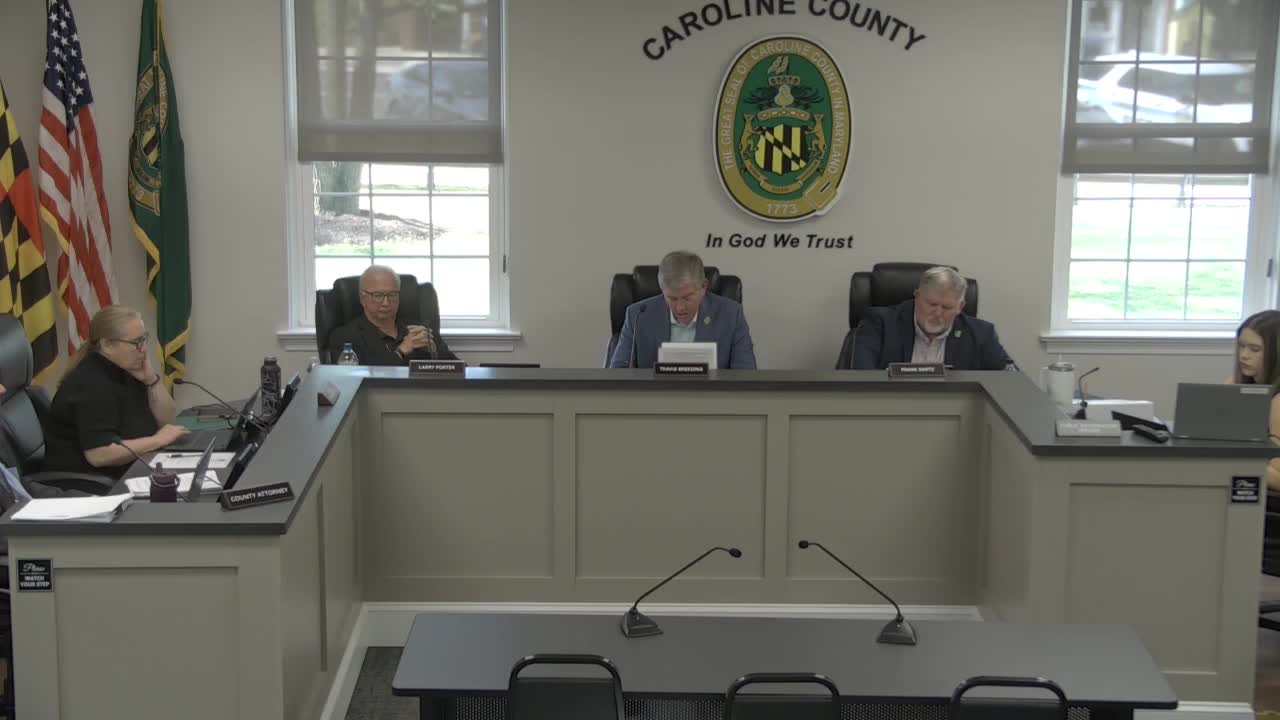Commissioners weigh options for North County sewer: connect to Greensboro or build local system
Get AI-powered insights, summaries, and transcripts
Subscribe
Summary
The board discussed failing septics and sewer service in northern Caroline County, weighing continued hookup to Greensboro’s wastewater plant against creating a new regional or county-operated treatment system; staff will meet with MDE and seek clarification from Greensboro.
Caroline County commissioners spent a substantial portion of the April 22 meeting discussing options to address failing septic systems and sewer service for the county’s northern towns.
Commissioners and staff described two primary options: continue connecting affected communities to Greensboro’s wastewater treatment plant under the existing agreement, or investigate building a north-end wastewater treatment plant—either multiple small systems, a single plant serving several towns, or establishing a new authority or county-managed system.
Board members and staff raised concerns about the current arrangement with Greensboro: municipalities that connect under the existing agreement have limited operational control and little say over rate-setting, and residents told commissioners they recently saw rate increases that caused alarm in some communities. At the meeting commissioners discussed reports that Goldsboro residents' sewer charges previously were $77 per month, rose to $119 for a month, and then were recalculated to $129. The transcript indicates that Greensboro did not provide the required notice in some instances, which led to at least one delayed increase.
Staff and commissioners noted additional context: Goldsboro was included in the original hookup because of draft consent-order issues for failing septic systems, and the allowable hookups were limited (Leslie, county staff, indicated Goldsboro represented about 25 equivalent dwelling units and roughly 70 system users). Commissioners said there are increasing numbers of failing septic systems and holding tanks across the north end, which are expensive to service because they require pumping and transport to a treatment plant outside the immediate area.
Operational issues also emerged in the discussion: commissioners said the prior plant operator (identified in the transcript as Prostar) failed to meet permitted discharge limits and the plant moved to a different operator (named as Susquehanna in the transcript) at higher cost; MDE enforcement and USDA funding/loan terms can influence rates and operation. Commissioners emphasized that any decision to operate a county plant would require careful financial modeling so that those who connect would cover operating costs and debt service rather than the county subsidizing service for other areas.
Next steps discussed at the meeting included staff (Leslie and others) meeting with the Maryland Department of the Environment to explore grant and funding options and the county drafting a letter to Greensboro seeking an official statement on whether Greensboro intends to extend service to the other North County towns. Commissioners also discussed whether a county-managed authority would be appropriate if Greensboro declines to extend service.
No formal vote was taken to adopt a new policy; the items discussed produced direction for staff follow-up rather than a board decision to proceed with construction or county operation.
